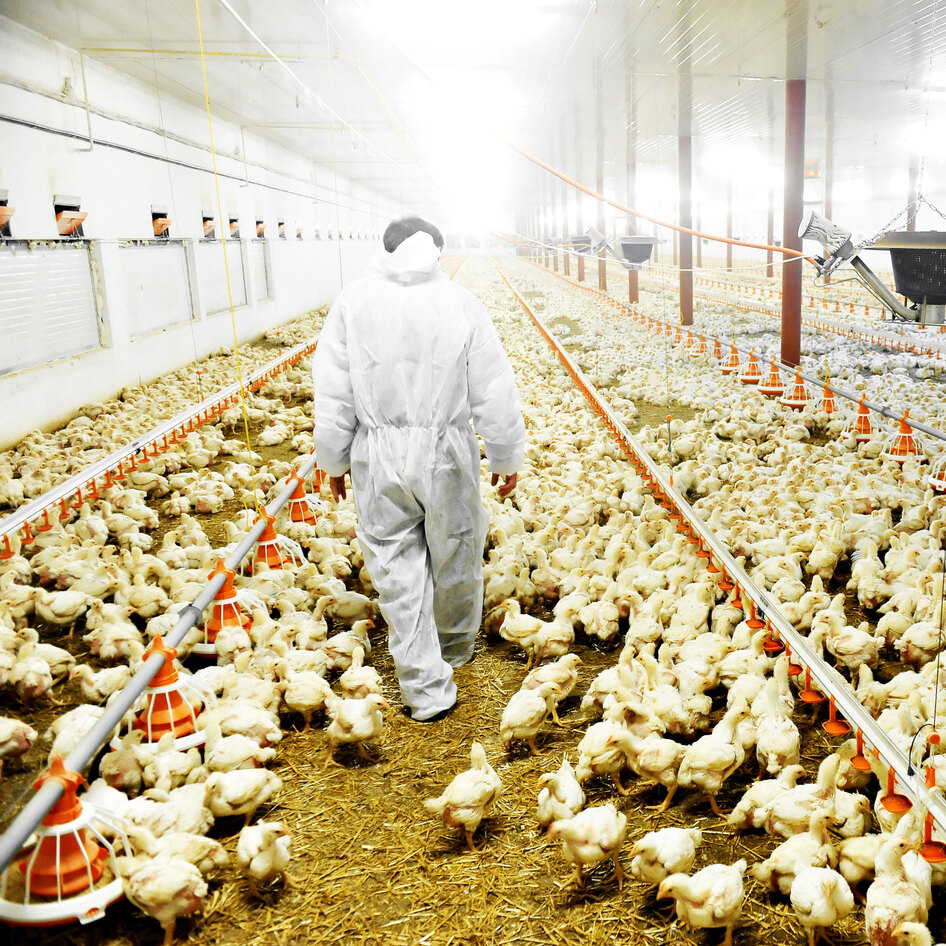Farmers across the United States have begun killing pigs and chickens as slaughterhouses close amid the coronavirus pandemic. In Iowa, farmer Al Van Beek ordered workers chemically induce abortions in pregnant mother pigs to eliminate 7,500 piglets as the farm no longer has room to house the animals, according to Rueters. Other farmers in Iowa are killing piglets and composting their bodies at a rate of approximately 125 per week as available meatpackers are at capacity. The practice is becoming widespread amongst animal farmers, including in Canada.
Since March, COVID-19 has been rapidly spreading amongst workers in the meat industry, who often work shoulder-to-shoulder without sufficient protective equipment—and return to work, even if sick, due to insufficient sick leave policies—to keep up with ever-increasing slaughter speeds. This month, meat industry giants halted operations at approximately 20 slaughterhouses nationwide after workers tested positive for COVID-19, including Smithfield, Cargill, National Beef, JBS, and Tyson. Business Insider analysts report that approximately 1,185 employees across Tyson’s workforce have tested positive and at least eight have died from COVID-19. The closures are behind the widespread disruption to meat industry operations as farmers who raise animals have nowhere to send them to be killed for food. “As pork, beef, and chicken plants are being forced to close, even for short periods of time, millions of pounds of meat will disappear from the supply chain,” Tyson Chairman John Tyson said. “As a result, there will be limited supply of our products available in grocery stores until we are able to reopen our facilities that are currently closed.”
Some researchers believe that the forthcoming shortage of animal meat exposes the volatility of meat industry operations and could result in an opportunity for plant-based meat products, which are expected to be available in stores with no disruption. “African swine fever (ASF) had already decimated Asian swine herds before COVID-19 came along to put further strain on Asia’s meat supply, and the rest of the world’s meat industries are in serious danger of being unable to maintain status quo production,” Sara Olson, Director of Research at data insight firm Lux Research, said. “Agricultural challenges in commodity crop production and processing will be slower to percolate into the food chain, meaning plant-based burgers and chicken alternatives have a window of opportunity right now to present themselves as more reliable alternatives—or potentially the only choice—next to empty meat cases in grocery stores. Only products in retail today will benefit immediately, but longer-term, expect more people to shift to ‘flexitarian’ approaches to protein consumption.”
Market research firm MarketsandMarkets concurs with Olson’s sentiment and predicts that the forthcoming meat shortage will lead to the growth of the plant-based meat industry from $3.6 billion in 2020 to $4.2 billion by 2021, driven by consumers’ fears of future animal-borne illnesses.
JUMP TO ... Latest News | Recipes | Guides | Health | Subscribe







